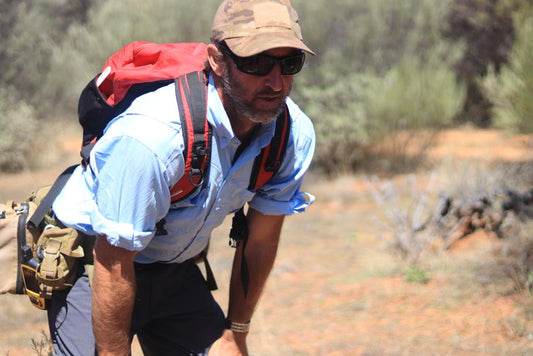NDIS Medical First Aid Requirements: Ensuring Safety and Well-being
Search Intent: Informational - Individuals with NDIS funding, their families, and support workers seeking to understand how first aid provisions can be accessed and implemented within NDIS plans.
The National Disability Insurance Scheme (NDIS) is designed to provide Australians with disabilities the support they need to1 live fulfilling lives. A crucial aspect of this support is ensuring the health and safety of participants, and this includes having appropriate first aid provisions in place. This blog post will explore how medical first aid requirements intersect with NDIS funding, offering guidance for participants, their families, and support networks.

Understanding NDIS Funding Categories and First Aid
While there isn't a specific NDIS funding category solely dedicated to "first aid kits," the necessary items and training can often be supported through various core and capacity-building funding categories. It's about demonstrating how these provisions are reasonable and necessary to support a participant's disability-related needs and help them pursue their goals.
Here's a breakdown of relevant funding categories:
-
Core Supports - Consumables: This category can often cover the costs of everyday items needed due to a participant's disability. Depending on individual circumstances and the direct link to a disability, standard first aid kit items and even specialised kits (like those for specific allergies or conditions) may be claimable under this budget.
-
Capacity Building - Improved Health and Wellbeing: This funding can be used for supports that help participants manage their health and well-being. First aid training for the participant, their family members, or support workers could fall under this category if it's deemed essential for managing a participant's specific health needs or potential risks associated with their disability.
-
Capacity Building - Training and Assessments: If specific first aid training is required for support workers to safely assist a participant with high-intensity needs, this funding category may be applicable.

Key Considerations for NDIS Funding of First Aid:
-
Direct Link to Disability: The need for specific first aid provisions must be directly related to the participant's disability. For instance, a participant with epilepsy might require specific first aid equipment and training for support workers to manage potential seizures safely.
-
Reasonable and Necessary: The requested supports must be deemed reasonable and necessary to help the participant pursue their goals, increase their independence, and enhance their social and economic participation.
-
Value for Money: The cost of the first aid provisions should be comparable to other options and provide good value in relation to the benefit it offers the participant.
Unique Perspective: Empowering Independence Through Preparedness
Often, the conversation around first aid focuses on reactive measures – what to do when an injury occurs. However, for NDIS participants, access to appropriate first aid kits and training can be a proactive step towards greater independence and participation.
Imagine a young adult with a disability who enjoys outdoor activities. Having a well-equipped, disability-specific first aid kit and support workers trained in its use not only ensures their safety but also empowers them to engage more confidently in their chosen hobbies. This preparedness reduces reliance on others in minor emergencies and fosters a sense of control and self-sufficiency.
Furthermore, for individuals with complex health needs, having readily available first aid supplies and trained support can significantly reduce anxiety for both the participant and their family. Knowing that potential minor medical situations can be managed effectively at home or in the community can lead to greater participation and a higher quality of life.
The NDIS has the potential to move beyond simply funding disability-related health supports to enabling participants to actively manage their well-being through access to appropriate first aid resources and education. This shift in perspective emphasizes empowerment and proactive safety management as key components of independence.
Practical Steps for Accessing First Aid Through NDIS
-
Identify the Need: Clearly define the specific first aid requirements based on the participant's disability, lifestyle, and potential risks. This might involve consulting with healthcare professionals and therapists.
-
Discuss During Planning: During NDIS plan development or review meetings, explicitly discuss the identified first aid needs and how funding can be allocated to address them.
-
Gather Supporting Documentation: Obtain documentation from medical professionals or therapists that highlights the necessity of specific first aid equipment or training due to the participant's disability.
-
Explore Providers: Research NDIS-registered providers who can supply appropriate first aid kits or deliver relevant training.
-
Justify the Request: Clearly articulate how the requested first aid provisions align with the NDIS funding criteria (reasonable and necessary, linked to disability, value for money, and supports participant goals).
-
Utilise Plan Management: If you have a plan manager, work closely with them to understand how to best utilise your funding and process claims for first aid-related expenses.
Conclusion
Ensuring the safety and well-being of NDIS participants is paramount. While there isn't a dedicated "first aid" budget, understanding how core and capacity-building funding categories can support these needs is crucial. By focusing on the direct link to a participant's disability, the principles of reasonable and necessary support, and the empowering potential of preparedness, individuals with NDIS funding can access the first aid resources and training required to live more independent and fulfilling lives.
External Australian References for Google EAT:
-
National Disability Insurance Scheme (NDIS) Official Website: (ndis.gov.au) - Provides comprehensive information about the scheme, funding guidelines, and participant supports.
-
Safe Work Australia: (safeworkaustralia.gov.au) - Offers national guidance on workplace health and safety, including information on first aid requirements in various settings.
-
St John Ambulance Australia: (stjohn.org.au) - A reputable national organisation providing first aid training, kits, and services across Australia. Their website offers valuable resources on first aid best practices.
-
healthdirect: (healthdirect.gov.au) - A national government-funded health information website offering reliable and up-to-date information on various health topics, including first aid.
-
Australian Resuscitation Council (ARC): (resus.org.au) - The peak body in Australia for setting guidelines on resuscitation techniques, including CPR, which is a critical component of first aid.















